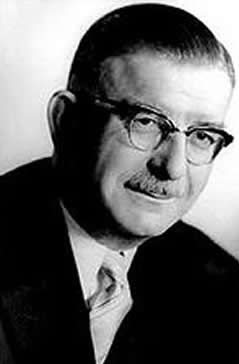Rudolf Wiefelspütz
Rudolf Ritter von Wiefelspütz | |
|---|---|
 Official portrait of Rudolf Wiefelspütz | |
| 31st Chancellor of Werania | |
| In office 5 July 1963 – 25 April 1965 | |
| Monarch | Otto X |
| Preceded by | Adolf Stahl |
| Succeeded by | August von Münstermann |
| In office 12 April 1980 – 8 June 1983 | |
| Preceded by | Albrecht Spaemann |
| Succeeded by | Ludolf Ostermann |
| Vice-Chancellor of Werania | |
| In office 17 May 1975 – 12 April 1980 | |
| Chancellor | Johannes Zollitsch Albrecht Spaemann |
| Preceded by | tba |
| Succeeded by | tba |
| Personal details | |
| Born | 20 May 1914 Burge, Cislania, Werania |
| Died | 14 June 2001 (aged 87) Konstadt, Cislania, Werania |
| Political party | KSP, NKP |
| Spouse | Renate Kassebaum |
| Children | 2 |
| Alma mater | University of Westbrücken |
Rudolf Ritter von Wiefelspütz (20 May 1914 - 14 June 2001) was a Weranian politician who served as Chancellor on two occasions; first from July 1963 to April 1965 and a second stint from April 1980 to June 1983. Wiefelspütz has the longest continuous ministerial service in Weranian history serving in various ministerial capacities in centre-right governments from 1955 to 1983.
Born in the city of Burge in 1914, Wiefelspütz attended the University of Westbrücken during the Great War. He joined the Catholic Social Party (KSP) and was elected to the Volkstag in 1942 at the age of 28. Wiefelspütz would be promoted to the cabinet by Konstantin Vogel in 1955 when he became Minister of Social Services from 1955 to 1960 and Minister of the Economy from 1960 to 1963. Considered to be the leader of the moderate Sotirian democratic faction that supported a social market economy and a pro-Euclean foreign policy within the National Consolidation Party (NKP) in 1963 Wiefelspütz became Werania's 31st Chancellor after his predecessor Adolf Stahl resigned. Wiefelspütz's government however came under attack due to patronage scandals surrounding the NKP and a decline in the economy leading to him to find it difficult to pass the 1965 budget through the Volkstag. As a result Wiefelspütz resigned as Chancellor being replaced by August von Münstermann. Von Münstermann, a fellow liberal conservative, kept Wiefelspütz in cabinet moving him to the portfolio of Minister of Finance.
Wiefelspütz would retain the Finance Ministry under Von Münstermann's (1965-1968) and Sigmar Welskopf-Henrich's (1968-1972) governments. Under his tenure he largely supported fiscal discipline and the continued growth of the großkombinats. In the first cabinet of Johannes Zollitsch Wiefelspütz became Foreign Affairs; in 1975 he acquired the additional portfolio of Vice-Chancellor, keeping both posts under Zollitsch's successor Albrecht Spaemann in 1979. He remained the most influential factional leader in the NKP with some stating he had "handpicked" Spaemann to the Chancellorship.
In 1980 the economic bubble that had sustained the großkombinats collapsed resulting in the Weranian economy to enter a severe recession. Spaemann resigned as Chancellor as a result leading to Wiefelspütz to become Chancellor once again. In his second Chancellorship Wiefelspütz focused on reviving the economy mainly through the use of cutting government spending. In 1981 he was forced to take a loan from the Global Institute for Fiscal Affairs a decision that was hotly contested and led to a decline in the government's popularity. As a result at the 1983 federal election the NKP lost power for the first time since its creation in 1957 to a coalition between the Social Democratic Radical Party of Werania and Weranic Section of the Workers' International, ending Wiefelspütz's time in the chancellery and his ministerial career.
Wiefelspütz remained NKP leader following the election. In 1984 new right deputies who opposed the corporatist policies promoted by Wiefelspütz attempted to remove him as leader - as a result Wiefelspütz resigned from the leadership allowing his protégé Maximilian Frommel to succeed him causing the new right to form the Democratic Alternative. Wiefelspütz would remain an influential factional leader in the NKP until 1991 when NKP leader Edmund Blaurock instituted an age limit of 75 on NKP Volkstag candidates, effectively forcing Wiefelspütz into retirement at the 1991 election. After leaving the Volkstag Wiefelspütz would continue to advise Euclean centre-right politicians as well as work for various foundations and think tanks promoting Euclean integration. He died in 2001 after suffering from respiratory problems.
Wiefelspütz has been recognised as one of Werania's most influential politicians in the mid-20th century and a key figure in the 28-year long rule of the NKP from 1955 to 1983. He is credited as a noted contributor to the social market economy and one of Werania's foremost advocates of Euclean integration. He is the third and last Chancellor to serve non-consecutive terms.